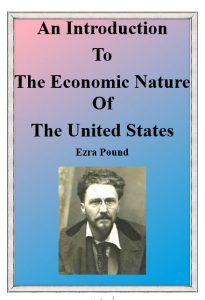THIS IS NOT A SHORT HISTORY OF THE ECONOMY OF THE UNITED STATES. For forty years I have schooled myself, not to write the Economic History of the U.S. or any other country, but to write an epic poem which begins “In the Dark Forest” crosses the Purgatory of human error, and ends in the light, “fra i maestri di color che sanno”. For this reason I have had to understand the NATURE of error. But I don’t think it necessary to refer to each particular case of error.
I do not believe that the method of historiography has progressed much since the days when Confucius selected the documents of the old kingdoms, and condensed his conclusions in the Testament. Aristotle toward the end of his life arrived at a similar method, in his collection of Greek State Constitutions. Voltaire used the “human” method which hinges on chance and the personal element. A prince eats a pudding and dies of acute indigestion at a critical moment. Caesar Borgia said : “I had anticipated everything except being bedridden the day my father died.” Michelet analyses the motives of different social groups and tells us that the manual labourer wants to own a shop because he thinks shop-keepers don’t work. Another method consists in analysing certain mechanisms invented to humbug the public. Perhaps it is the renewal of an Aristotelian tendency but, in any event, it is suitable for the present narrative, and I am following it in this essay or definition, of the struggle between the people and the usurers, or financiers, in the colonies, and then in the United States of North America.
